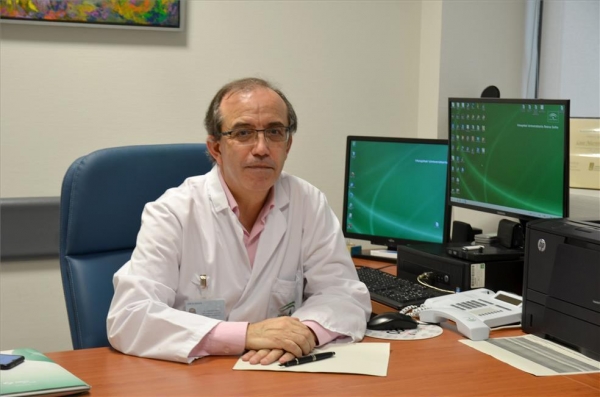Antibiotic resistance is one of the main problems the world faces today. In 2015 the World Health Assembly adopted a global action plan to address this problem, and the World Health Organization (WHO) published a list of the most dangerous bacteria in terms of antibiotic resistance, establishing research and the development of new and effective antibiotics as a priority. Among them was Pseudomonas aeruginosa, a leading cause of chronic infections and whose antibiotic resistance is associated with more than 300,000 deaths worldwide each year.
In a context of surveillance and control of this bacterium, a high-resolution analysis of the development of its antibiotic resistance at the national level, between 2017 and 2022, was carried out. In this study, led by the Instituto de Investigación Sanitaria Illes Balears (Balearic Islands Research Institute) and the Hospital Son Espases, one of the coordinators is Luis Martínez, a professor in the University of Cordoba’s Department of Agricultural Chemistry, Edaphology and Microbiology and a researcher at IMIBIC. Mr. Martínez also oversees the Microbiology Service at the Hospital Universitario Reina Sofía.
In this work, in which more than 60 Spanish hospitals participated, two studies with the same methodology were carried out: one in 2017, and another in 2022, to gauge the evolution of the bacteria's antibiotic resistance over a period of 5 years.
After determining resistance profiles (classifying each bacterium according to its degree of resistance to different families of antibiotics) and analyzing the genomics of the different strains of Pseudomonas aeruginosa, from more than 3,000 isolates obtained from infected patients, there is good and bad news: "the good news is that, globally, the quantity of resistant bacteria isolated in Spanish hospitals has decreased, not only in hospitals, in general, but also in ICUs," explains Martínez. The 2022 results showed a decrease in resistance to all the antibiotics tested, including the oldest and newest antimicrobials, compared to 2017.
The flipside to this encouraging result is that "there has been an increase in the presence of a special subgroup of multidrug-resistant bacteria that produce a type of mechanism based on the production of enzymes (carbapenemases) that degrade one of the most important families of antibiotics: carbapenems," says Martínez.
"The other negative part is that one of the variants of this bacterium, ST235, has expanded in our country. This is a strain that produces these carbapenemases more frequently," continued the researcher. The problem with ST235 is not only its antibiotic resistance, but the fact that it is hypervirulent, causing more aggressive infections.
Although this study does not include an analysis of the causes of the decline in the bacteria's rate of resistance, Martínez believes that "it is due to several factors, including the National Antibiotic Resistance Plan, which was launched in Spain in 2014; and the efforts of the teams working towards the appropriate use of antibiotics at hospitals, together with the availability of effective antibiotics." What is clear is "the need for surveillance and control programs, and effective drugs, to wipe out the infections they produce," the researcher concluded.
A unique study
This work, published in The Lancet Regional Health-Europe, is unique in the world due to its number of collaborating entities, the large number of isolates used in the study, and the years it covers. This is the result of collaboration since, as the researcher notes: "in Spain there has been a great tradition, for almost 20 years, of research groups that form a network in the field of infectious diseases to address problems of this nature."
This is another step in the continuous surveillance work to prevent the expansion of resistant bacteria that generate serious health problems, under the premise of "acting locally and globally, always seeking to prevent resistant bacteria from expanding."
Reference
Sastre-Femenia MÀ, Fernández-Muñoz A, Gomis-Font MA, Taltavull B, López-Causapé C, Arca-Suárez J, Martínez-Martínez L, Cantón R, Larrosa N, Oteo-Iglesias J, Zamorano L, Oliver A; GEMARA-SEIMC/CIBERINFEC Pseudomonas StudyGroup. Pseudomonas aeruginosa antibiotic susceptibility profiles, genomic epidemiology and resistance mechanisms: a nation-wide five-year time lapse analysis. Lancet Reg Health Eur. 2023 Sep 19; 34:100736 doi: 10.1016/j.lanepe.2023.100736


